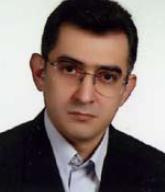Sarkozy and a Milestone For Future French Presidential Elections

As the French presidential election approaches, Nicolas Sarkozy considered overthrowing Gaddafi’s regime, issuing declarations, performing air operations, aiding Libyan revolutionaries, and recognizing the transition council as a victory for the country. The internal situation of France is not favorable at all-- it suffers the effects of the economic crisis, the unemployment rate is still high, and the purchasing power of its people has decreased.
Sarkozy presenting France as the pioneer in the regional changes has tried to show himself successful in the these areas, and his latest adopted position on Syria and his anti-Iran speech addressing the embassies should be evaluated with this in mind. The important point is that in the French political arena, foreign policy does not affect the result of elections and the people pay attention to domestic issues and the economic situation more than anything else. Since Sarkozy has been unsuccessful in that arena and the economic crisis in Europe and the world has been added to the problems of France, he has tried to use such foreign changes as his winning card.
Sarkozy has always stated that the international image of France has to be improved to achieve a suitable position. Many critics have assailed the weak performance of Sarkozy, compared to that of Chirac. He has tried to adopt a more aggressive and active position in foreign policy in order to restore French international influence and its image, and the country’s role in international interactions.
The International situation was also effective for France to play such a role. Because the US is tied up in Afghanistan and Iraq and suffers from internal pressure-- its poor economic situation and high debt brought about by wars which have forced it to commit to leave Iraq and Afghanistan by 2015-- it could not play an active role and domestic public opinion would not have accepted it either. This helped France to a play the role of pioneer in Libya’s case, adopting different positions regarding Libya, Syria and later Iran.

